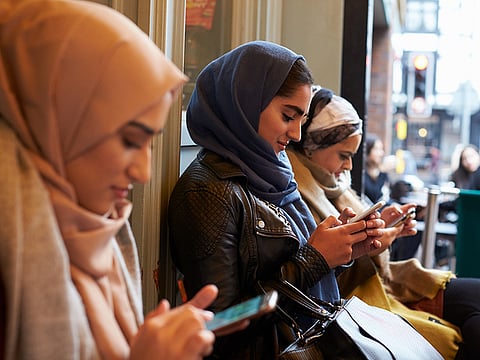Dubai cheaper for millennials goods than London or New York
Study threw many surprises like Hong Kong, otherwise considered expensive

Dubai: Dubai is among the cheaper cities compared to London or New York when it came to millennials’ must-have basket of goods, which includes an iPhone, a laptop, a pair of jeans, a pair of sneakers, a Netflix subscription, a cup of coffee, a Big Mac and avocados, an UBS study revealed.
The study threw many surprises like Hong Kong which is otherwise considered as an expensive place for expats is the cheapest when it came to the basket of millennial goods. The most expensive was Buenos Aires, which is an affordable place for expats.
An iPhone would cost $2,242 in Buenos Aires, compared to $1,212 in Dubai. iPhones are available in Hong Kong for $1,096, the cheapest in the lot.The most expensive coffee was available in Dubai for $5.70 among the data of cities available, and the cheapest coffee was available in Johhanesburg at $1.49.
A kilogramme of avacados would cost more than $8 in Zurich compared to $3.05 in Hong Kong. Similarly millennials can buy cheapest sneakers in Bangkok for $68 compared to $142 in Moscow and $78 in Dubai.
Another surprise was Zurich. The iPhone had the third-cheapest price tag, dropping the expensive Swiss city to fifth place overall. But millennials here will have pretty empty pockets after paying the highest prices for their jeans, Netflix and coffee.
The UBS study was the part of Price and Earnings 2018, which was instituted in 1971 and conducted after every three years.
Millennials, who were born between 1982 and 1998, account for 27 per cent of the global population and may hold $24 trillion of world’s private wealth -- 1.5 times of United States national output in 2015 -- from $17 trillion now.
Purchasing power
In terms of purchasing power, Dubai ranks lower than even Manama on the list.
Manama came in at 8th in terms of purchasing power, while for price level the city was ranked as 39th, and the city figured 35th on the list for earnings just before Dubai.
Dubai, which ranked 36th on the list, was much more expensive city compared to Manama. “You have the convergence of wages from emerging markets in general to more developed and richer countries. This is a region somewhere in between, so it’s a region somewhere in between. They have superior wages because of non-existent of income tax and social security,” Daniel Kalt, chief economist and regional chief investment officer Switzerland at UBS Switzerland said.
Los Angeles figured first in the list for purchasing power followed by Zurich. For earnings, Geneva was the best place followed by Zurich, and they were equally expensive.
Saving and investing habits
According to UBS, millennials prefer to invest in sustainable ideas.
“Sustainable Investing established that this age group is nearly twice as likely to check product labelling for sustainability criteria, when compared to other age cohorts,” the UBS said in a recent study.
Global financial assets managed according to responsible investment principles stood at $22.9 trillion in 2016, up by a quarter since 2014 and representing around 26 per cent of all global professionally managed financial assets.
Among other insights, according to McKinsey, millennials are multi-faceted in terms of their consumption of delivery mechanisms are concerned. Millennials transact business with their principal bank 52 times a year via internet banking, compared to 42 times a year for Baby Boomers, while having more than double the number of mobile banking touch points. However, millennials also visit branches nearly twice as often as Baby Boomers, and engage with a broker or agent three times as often as Boomers.
Sign up for the Daily Briefing
Get the latest news and updates straight to your inbox



